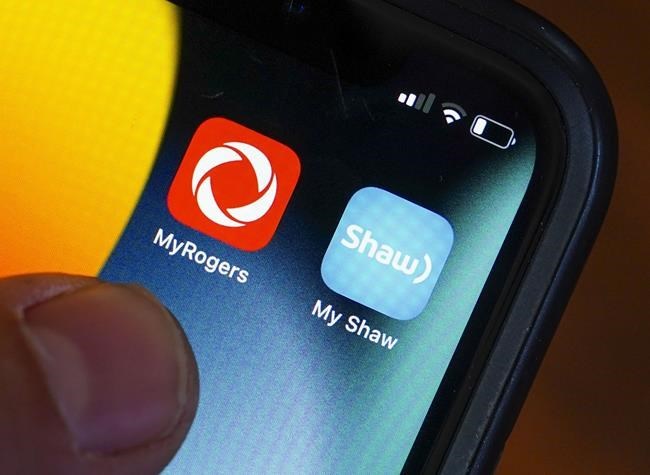OTTAWA ŌĆö Plans by Rogers Communications Inc. and Shaw Communications Inc. to sell Shaw's wireless businessdo not outweigh the harm that the companies' proposed merger would cause, the Competition Bureau has argued in court documents.
In May 9 filings to the Competition Tribunal, the regulator says the sale of Freedom Mobile would not add competition to the telecom sector because the new owners "are likely to provide less effective financial, managerial, technical or other support," making it harder for the carrier to go up against Rogers, BCE Inc. and Telus Communications Inc.
Rogers and Shaw have said that the sale of Shaw's Freedom Mobile, expected to be a condition of the proposed deal's approval by Innovation, Science and Economic Development Canada, is the best way to maintain competition in the wireless space while allowing the merger, first announced in March 2021, to move forward.
Freedom Mobile founder Anthony Lacavera and Quebecor Inc. have expressed interest in the carrier. Meanwhile, rural internet provider Xplornet Communications Inc. has reportedly been presented to regulators as a potential buyer.
The Competition Bureau filings come after the Commissioner of Competition, Matthew Boswell, said Monday that the regulator was seeking to block the $26-billion acquisition of Shaw by Rogers in an effort to protect 91įŁ┤┤s from "higher prices, poorer service quality and fewer choices, particularly in wireless services."
Desjardins analyst Jerome Dubreuil said the filings, made public late Tuesday, are slightly negative for Rogers as it's now known that the Competition Bureau opposes the company's proposed remedy package.
"We were previously not certain if the [Competition Bureau] had considered the remedy package in its analysis. We believe tonightŌĆÖs development slightly affects the odds that the deal will ultimately be approved," Dubreuil wrote in a report.
He said the regulator's concern about splitting Shaw's wireless and wireline businesses could be more challenging to address in a remedy package, but that the two potential paths forward for the deal remain a negotiated settlement with the Competition Bureau or a positive resolution before the Competition Tribunal.┬Ā
The Competition Bureau said in the court document that the proposed deal between Rogers and Shaw would undo more than a decade of regulatory efforts to increase competition in the telecom sector, adding that the sector has already seen reduced competition since the deal was announced.
Shaw has pulled back on marketing and promotional activity, as well as investments that would strengthen its ability to be a viable competitor, resulting in customers making the switch to Rogers, the document noted.┬Ā
In addition, Shaw opted not to participate in last year's wireless spectrum auction deemed crucial for the development of 5G networks.┬Ā
The watchdog argues that Rogers would effectively be eliminating a "direct, disruptive and growing competitor" if the transaction were to go through, noting that Shaw has managed to be a "dynamic" competitor in a telecom environment dominated by Rogers, BCE and Telus, driving down prices, offering bigger data allowances and getting rid of data overage fees.
The Competition Bureau is one of three regulators that must approve the merger before it can close. The 91įŁ┤┤ Radio-television and Telecommunications Commission granted its approval earlier this year.
Rogers and Shaw have 45 days to file a response with the Competition Tribunal and once those responses are received the bureau must respond within 14 days.
Rogers and Shaw have said they plan to press ahead with the deal and fight the commissioner's efforts to block it.
This report by The 91įŁ┤┤ Press was first published May 11, 2022.
Companies in this story: (TSX:RCI.B, TSX:SJR.B)
The 91įŁ┤┤ Press



